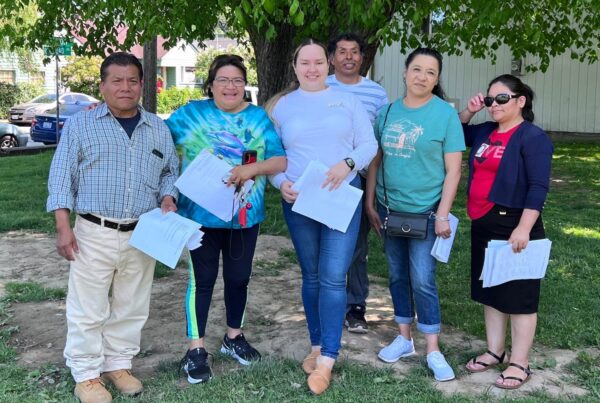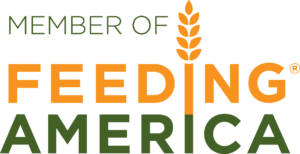
The following are Food Lifeline’s priorities for the 2024 Washington State Legislative Session. Session runs from January 9 to March 7.
“Actively Support” Agenda = Dedicating energy & resources to pass a bill or measure, lead or co-lead with partner organizations, activate grassroots, testify at hearings, work with members and their staff, collaborate with other lobbyists, pursue media strategies, etc.
- Guaranteed Basic Income—ACTIVELY SUPPORT legislation creating a pilot program for direct cash assistance to help Washington residents struggling under unprecedented income inequalities.
- Statewide Hunger Relief—ACTIVELY SUPPORT $15 million for WSDA’s Emergency Food Assistance Program (EFAP).
- Encouraging Food Donation—ACTIVELY SUPPORT policies and investments to encourage and support food donation practices in Washington, including efforts to achieve the state’s goal of a 50% reduction in wasted food by the year 2030. Including creating a $25 million program to scale up sourcing donated Washington produce, protein, and grains; establishing date labeling standardization to clarify “quality” and “safety”; creating wasted food reduction capacity grants for cold storage and refrigerated trucks, and fostering statewide collaboration on grocery rescue best practices.
- School Meals—ACTIVELY SUPPORT measures to expand access to school meals at no student cost and improve access and availability of related school nutrition programs, including Summer EBT.
- Senior Meals—ACTIVELY SUPPORT $15.2 million for meal and nutrition programs for seniors.
- Working Families Tax Credit—ACTIVELY SUPPORT improvements and expansion of Washington’s tax credit program for households with low and moderate incomes.
“Support Agenda” = Lending organization name to letters, sign-in support at committee hearings, provide some grassroots, lobbying, or other resources.
- Traffic Safety for All—SUPPORT HB 1513 to end traffic stops for nonmoving violations and provide grants that help people comply with the law and avoid low-level violations.
- Attorney General Investigations and Reform—SUPPORT legislation to empower the Attorney General’s Office to investigate and act on patterns and practices of misconduct at law enforcement agencies.
- Independent Prosecutor—SUPPORT HB 1579 creating a state office to work with the Office of Independent Investigations for fair, credible, and transparent prosecutions.
- State Housing Trust Fund & Rental Assistance—SUPPORT measures to increase affordable housing and assistance for renters at risk of eviction.
- Use Food Well Washington—SUPPORT measures to implement the UFWW Plan recommendations to meet Washington’s 2030 food waste reduction goals and a more resilient food system.
- Hunger Free College Campus —SUPPORT measures to address students’ food insecurity and basic needs.
- Military Family Hunger—SUPPORT measures to improve food security among veteran and military households.
- Wealth Tax—SUPPORT measures to rebalance Washington’s regressive tax code while providing more revenue for community investments by enacting a 1% levy on wealth held in financial assets, such as stocks and bonds—after exempting the first $250 million of assessed
Full Agenda with Additional Information and Food Lifeline Public Policy Platform Linkages
Equity & Social Justice
Hunger disproportionally impacts people who experience systemic racial and social injustice. These strong social determinants of hunger indicate clear opportunities to advance policies that remedy the inequitable and unjust systems. Food Lifeline will consider policy measures which focus on racial equity & social justice for vulnerable and low-income children, adults, and seniors, with emphasis on families of color, immigrant, and under-resourced communities.
Racial Equity—SUPPORT policies aimed at dismantling institutional racism and inequitable and unjust systems that create and perpetuate determinants of hunger, including:
- Traffic Safety for All—SUPPORT HB 1513 to end traffic stops for nonmoving violations and provide grants that help people comply with the law and avoid low-level violations.
- AG Investigations and Reform—SUPPORT legislation to empower the Attorney General’s Office to investigate and act on patterns and practices of misconduct at law enforcement agencies.
- Independent Prosecutor—SUPPORT HB 1579 creating a state office to work with the Office of Independent Investigations for fair, credible, and transparent prosecutions.
Poverty
Hunger is an expression of poverty. Poverty is the disproportionate allocation of resources which creates systemic injustices – inadequate financial resources, unaffordable and inaccessible healthcare and housing, under-employment, and a scarcity of living wage occupations. Ending hunger is inseparably tied to ending the practices and standards that create poverty. Food Lifeline will consider policy measures that end conditions of poverty, especially concerning household stability, affordable housing, living wage employment, and related essential needs.
- Guaranteed Basic Income—ACTIVELY SUPPORT legislation creating a pilot program for direct cash assistance to help Washington residents struggling under unprecedented income inequalities.
- State Housing Trust Fund & Rental Assistance—SUPPORT measures to increase affordable housing and assistance for renters at risk of eviction.
Food Systems
Consistent, equitable access to nutritious food depends on state, regional, and local food systems producing food that is sustainable, abundant, and responsive to community needs. This requires an effective food policy environment for government, business, and agricultural interests and the workforces supporting them. Food Lifeline will consider measures that improve food justice, food systems resiliency, and operational capacity for hunger relief.
- Statewide Hunger Relief—ACTIVELY SUPPORT $15 million for WSDA’s Emergency Food Assistance Program (EFAP).
- Encouraging Food Donation—ACTIVELY SUPPORT policies and investments to encourage and support food donation practices in Washington and to achieve the state’s goal of a 50% reduction in wasted food by 2030, including creating a $25 million program to scale up sourcing donated Washington produce, protein, and grains; establishing date labeling standardization to clarify “quality” and “safety”; creating wasted food reduction capacity grants for cold storage and refrigerated trucks, and fostering statewide collaboration on grocery rescue best practices.
- Use Food Well Washington—SUPPORT measures to implement the UFWW Plan recommendations to meet Washington’s 2030 food waste reduction goals and a more resilient food system.
Hunger, Health, and Wellbeing
Steady access to affordable, nutritious, and desired foods both improve people’s health & wellbeing and make for healthier communities to live in. As such, nutrition is an essential complement to healthcare and lowering the cost of healthcare. Food Lifeline will consider measures that positively impact the health of people experiencing hunger in community, educational, work, and healthcare settings.
- Encouraging Food Donation—ACTIVELY SUPPORT policies and investments to encourage and support food donation practices in Washington, including efforts to achieve the state’s goal of a 50% reduction in wasted food by the year 2030.
Nutrition Assistance
Government nutrition assistance programs are a critical line of defense against hunger, yet current efforts do not always avert food insecurity alone or keep up with changing needs. Because of their scope and broad impact, they must be a top priority for additional funding and innovation. Food Lifeline will prioritize measures that seek to fund and improve equity, access, adequacy, and participation across state and federal nutrition assistance resources.
- School Meals—ACTIVELY SUPPORT measures to expand access to school meals at no student cost and improve access and availability of related school nutrition programs, including Summer EBT.
- Senior Meals—ACTIVELY SUPPORT $15.2 million for meal and nutrition programs for seniors.
- Hunger Free College Campus —SUPPORT measures to address students’ food insecurity and basic needs.
- Military Family Hunger—SUPPORT measures to improve food security among veteran and military households.
Tax Policy
Tax policy plays a key role in the level of economic justice and wellbeing that people experience. It also determines the level of funding available for community investment. As such, it is important to advance tax code that creates the racial and economic justice necessary to end hunger. Food Lifeline will consider measures that promote equity and fairness in Washington’s tax code and create more opportunity for community investment.
- Working Families Tax Credit—ACTIVELY SUPPORT improvements and expansion of Washington’s tax credit program for households with low and moderate incomes.
- Wealth Tax—SUPPORT measures to rebalance Washington’s regressive tax code while providing more revenue for community investments by enacting a 1% levy on wealth held in financial assets, such as stocks and bonds—after exempting the first $250 million of assessed value.
- Nonprofits—MONITOR legislation impacting tax or regulatory environments for nonprofits.
Position Statement Guide
Actively Support = Dedicating energy & resources to pass a bill or measure, lead or co-lead with partner organizations, activate grassroots, testify at hearings, work with members and their staff, collaborate with other lobbyists, pursue media strategies, etc.
- Support = Lending organization name to letters, sign-in in support at committee hearings, provide some lobbying or other resources.
- Monitor = monitor an issue as it progresses, report substantive changes that could influence a change in our position.
- Oppose = Lending organization name to letters, sign-in in opposition at committee hearings, provide some lobbying or other resources.
- Actively Oppose = Dedicating energy & resources to stop a bill or measure, lead or co-lead with partner organizations, activate grassroots, testify at hearings, work with members and their staff, collaborate with other lobbyists, pursue media strategies, etc.
Food Lifeline Advocacy Team
Aaron Czyzewski | Advocacy & Public Policy | aaronc@foodlifeline.org | c 813-503-3535
Katrina Johnson | Advocacy Campaigns | katrinaj@foodlifeline.org
Alicya Pearson | Community Action | alicyap@foodlifeline.org
Rashell Lisowski | Neighbors Engagement Advocacy | rashelll@foodlifeline.org
Nora Burnes | Lobbyist | nora@palattaoburnes.com






